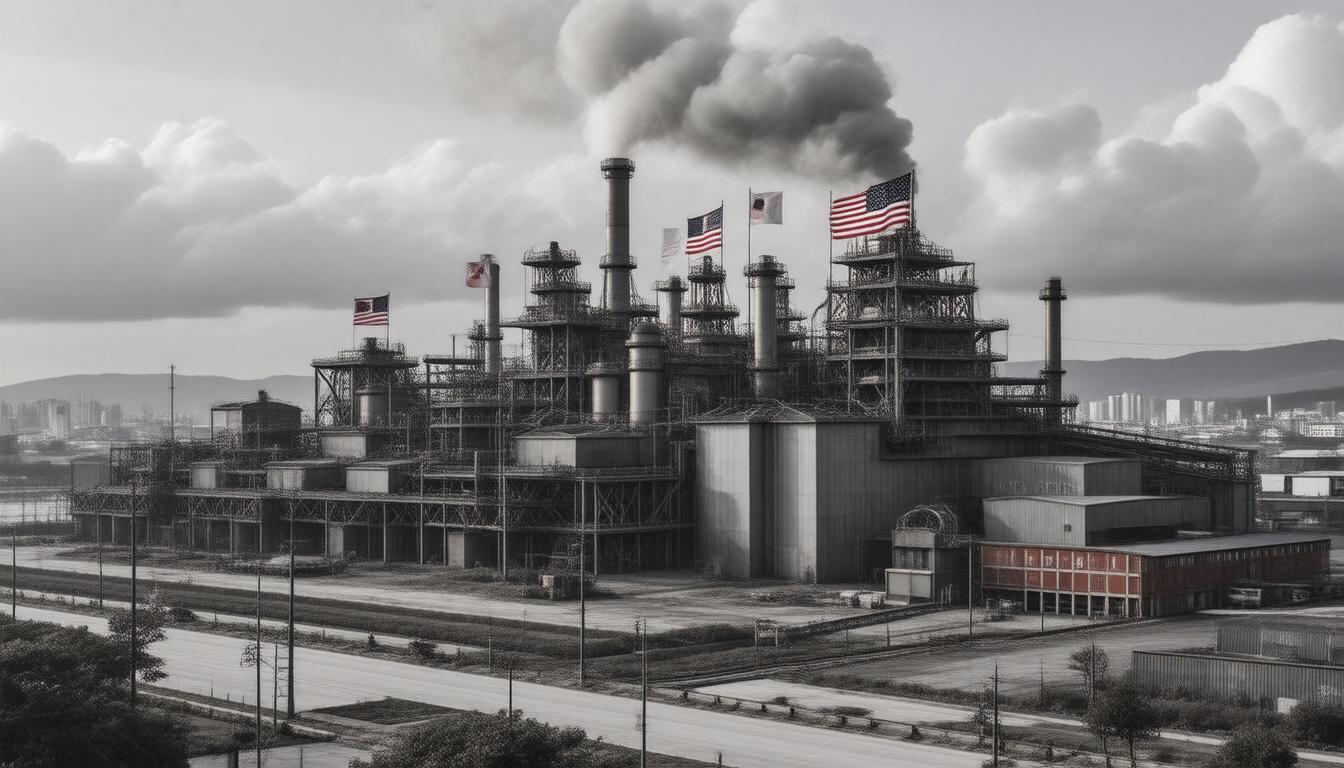In a significant move impacting both national security and international relations, President Biden is poised to block the $14 billion takeover of U.S.
Steel by Japan’s Nippon Steel.
This decision reflects a growing trend among U.S.
lawmakers to scrutinize foreign investments more closely, particularly in industries considered vital to America’s infrastructure and economy.
As Biden approaches the culmination of his term, the implications of this announcement extend beyond the corporate landscape, affecting foreign investor confidence and geopolitical dynamics.
This article delves into the national security concerns that underlie such foreign acquisitions, their potential repercussions on U.S.-Japan relations, and the broader implications for the domestic economy.
Key Takeaways
- President Biden’s decision to block the $14 billion takeover underscores the importance of national security in foreign investments.
- The move highlights the influence of U.S. Steel on the American economy and its political implications in an election year.
- Blocking the deal may reshape foreign investors’ approach to sensitive U.S. industries and affect diplomatic relations with Japan.
National Security Concerns in Foreign Investments
The impending announcement from President Biden regarding the $14 billion takeover of U.S.
Steel by Japan’s Nippon Steel underscores a critical intersection between foreign investment and national security.
Citing significant national security concerns, this decision, made through the lens of the Committee on Foreign Investment in the United States (CFIUS), reflects Biden’s intention to safeguard key American industries, especially as he approaches the conclusion of his term and amidst a politically charged election year.
U.S.
Steel, rooted in Pennsylvania, is not just a manufacturer; it serves as a cornerstone of American infrastructure and economic stability.
The reservations expressed by CFIUS about the deal highlighted fears that this acquisition could compromise domestic steel production and raised questions about Nippon Steel’s willingness to invest in local operations given its expansive global interests.
As nations increasingly scrutinize foreign investments in sensitive sectors, Biden’s move could reshape perceptions within the foreign investment landscape, particularly in states vital to electoral politics, while also posing potential challenges to U.S.-Japan relations, a partnership that is fundamental for both economic and geopolitical strategies.
Impact on U.S.-Japan Relations and Domestic Economy
The expected decision by President Biden to block the takeover of U.S.
Steel by Japan’s Nippon Steel is poised to have far-reaching implications not only for U.S.-Japan relations but also for the domestic economy.
An integral player in the American steel industry, U.S.
Steel’s operations are pivotal for the infrastructure that underpins many sectors in the U.S.
economy.
Biden’s decision, driven by national security concerns, could deter foreign investment in critical American industries, signaling to potential investors that acquisitions may face increased scrutiny, especially in politically sensitive regions.
This dynamic is particularly relevant as Pennsylvania, home to U.S.
Steel, is a battleground in presidential elections, making the political ramifications of this decision even more pronounced.
As the U.S.
navigates its complex relationship with Japan, which remains a crucial ally, such unilateral actions may lead to diplomatic tensions while simultaneously energizing discussions about domestic production and investment strategies.











